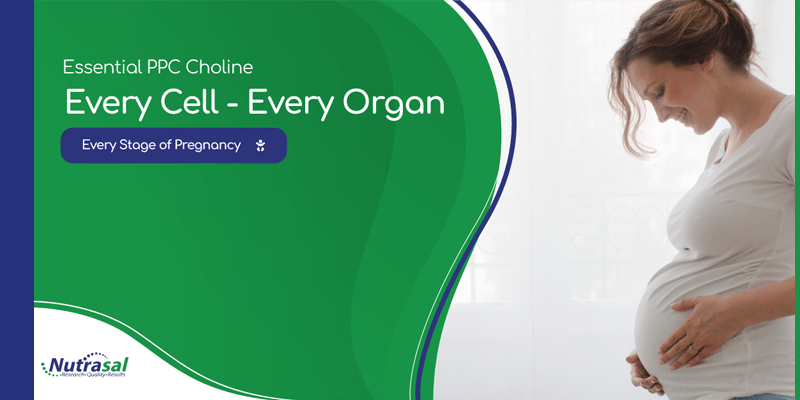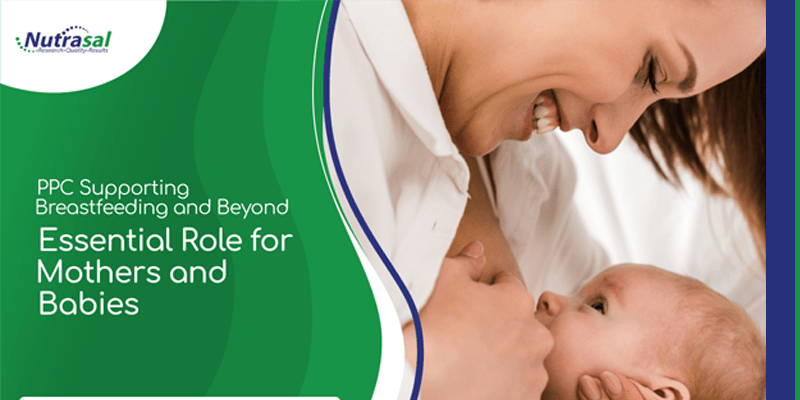Nutrasal Support Team - August 08 2023
Non Alcoholic Fatty Liver Disease (NAFLD)
New Study Points to PPC for Reduced Risk of NAFLD

Polyenylphosphatidylcholine (PPC) is essential nutrition and a necessary building block for life. PPC is crucial to maintaining proper cell metabolism and liver function
Keywords/Roles: Liver Function, Fatty Liver, NAFLD, Non Alcohoilc Fatty Liver Disease, Polyenyl-Phosphatidylcholine (PPC), Hepatology, Liver Health
NNAFLD is now the most common liver disorder in the world with a prevalence rate ranging from 6% to 35% of the general population, and a median rate of 20%. There is strong evidence that the occurrence of NAFLD is increasing and is likely to correspond to regional trends in over nutrition, obesity, type 2 diabetes, and metabolic syndrome.NAFLD equally affects both sexes. Although, it is most common in over-weight and obese persons and in patients with adult onset (type 2) diabetes, it can also be present in lean persons and in overweight children and adolescents.NAFLD represents a spectrum of hepatic disorders characterized by macrovesicular fatty liver, with histology ranging from steatosis (fatty liver) to non-alcoholic steatohepatitis (NASH), to NAFLD-associated cirrhosis and to hepatic cancer. In addition to being a disease of the liver, NAFLD is associated with an increased risk of type 2 diabetes mellitus, chronic kidney disease, and cardiovascular disease, with the latter being the most common cause of death in patients with NAFLD.It is the risk of progression from fatty liver as a benign disorder to liver disease with inflammation, fibrogenesis and cell death that makes NAFLD a medical challenge, as an established therapy is not yet available.One of the compounds in the focus of investigation is polyenylphosphatidylcholine (PPC) from soybean (Phoschol®). As the non-toxic PPC is widely used in membrane-associated hepatic diseases (for example by alcohol, medicaments, and pollution), its effectiveness on NAFLD was also anticipated.The use of highly purified phosphatidylcholine as EPL (essential phospholipids - 76% + PC) and PPC (polyenyl-phosphatidylcholine - 100% PC) is well established. Hundreds of clinical studies and thousands of pharmacological investigations confirm PPC is a superior liver protectant. And seventy (70) years of use worldwide and billions of doses administered for liver and cardiovascular disorders has clearly demonstrated that PPC is a safe and effective therapy or adjunctive therapy.
PPC as described in Hepatology a leading medical textbook

“Based on these pharma-cological and clinical data, PPC would appear to be the drug of choice for significantly reducing or abolishing fatty liver of different origin, e.g. due to alcohol, or obesity, even if the causing noxa cannot be eliminated, as is the case with diabetes-associated steatosis.”
Dr. E. Kuntz and Dr. H.-D. Kuntz: Hepatology - Textbook and Atlas-.3rd Edition, 2008
New Study Highlights the Significance of PPC
as a Potential Therapy for NAFLD
"Effectiveness of phosphatidylcholine as adjunctive therapy in improving liver function tests in patients with non-alcoholic fatty liver disease and metabolic comorbidities"
Study Objective
Non-alcoholic fatty liver disease (NAFLD) is the most common cause of abnormal results of liver function tests. Earlier research showed that polyenylphosphatidylcholine (PPC) has hepatoprotective effects and thus can be used for the treatment of NAFLD and the prevention of its progression. Accordingly, the aim of this observational study was to evaluate if PPC administered as adjunctive therapy in routine clinical practice can effectively improve liver function tests of NAFLD in Russian patients with associated metabolic comorbidities.
Study Highlights
What is already known about this subject?
►► “Non-alcoholic fatty liver disease (NAFLD) is currently the most common cause of abnormal results of liver function tests.
►► Aspartate aminotransferase (AST), alanine aminotransferase (ALT), and gamma-glutamyl transferase (GGT), which are markers of liver injury, are still considered as useful surrogate measures of NAFLD for clinical practitioners; recently, however, their diagnostic value has been challenged.
►► Previous research has indicated that polyenylphosphatidylcholine (PPC) might have a positive influence on liver enzyme levels, as well as on serum lipid profile.
What are the new findings?
►► PPC administered as adjunctive therapy in patients with NAFLD with metabolic comorbidities consistently lowered AST, ALT and GGT levels, irrespective of the nature and number of associated comorbidities.
►► Although a low rate of achieving total cholesterol levels below 5.0 mmol/L was noted at the end of the study in the overall patient population, significant improvements in lipid parameters were observed in both patients receiving PPC only and in those receiving PPC in addition to statins and/or fibrates.
How might it impact on clinical practice in the foreseeable future?
►► PPC has a promising role in the management of both NAFLD and its extrahepatic manifestations, including abnormal liver enzyme and lipid levels.
►► Liver enzymes can be useful markers for monitoring the progression of NAFLD over time. There is a need for further investigation on the association of liver enzymes with NAFLD, which might help improve the diagnosis, management, and risk prediction of NAFLD progression and provide a more accurate indicator for chronic metabolic liver injury.
►► Individualized intervention strategies should be adopted in Russia to improve the management of patients with NAFLD with associated dyslipidemia.
Study Conclusions
Adjuvant treatment with PPC resulted in consistent improvements in liver enzymes in patients with newly diagnosed NAFLD and associated metabolic comorbidities. The results of the study suggest that PPC as an adjunctive therapy is effective in improving liver function markers of NAFLD in patients with associated metabolic comorbidities and that PPC might have a positive impact on serum lipid profile.
References:
Maev IV, Samsonov AA, Palgova LK, et al. Effectiveness of phosphatidylcholine as adjunctive therapy in improving liver function tests in patients with non-alcoholic fatty liver disease and metabolic comorbidities: real-life observational study from Russia, BMJ Open Gastroenterology, 2020;7:e000368. doi:10.1136/bmjgast-2019-000368
The Purity of Phosphatidylchoine (PC)and
the concentration of Dilinoleoyl-phosphatidylcholine (DLPC) determines if it's a Cell Membrane Therapeutic

Made in
USA
Mfr.
cGMP
Gluten
Free
Pure
PPC
3rd Party Tested
The Best Source of Phosphatidylcholine is 100% Pure PhosChol PPC (Dr. Sherry Rogers M.D.)
Phosphatidylcholine clearly plays a vital role in human and animal life. Its role is even more important when harmful environmental conditions lead to increased inflammation, oxidative and cell membrane damage. When cell membranes become damaged and rigid due to higher levels of inflammation and oxidative stress, cell function and metabolism decreases, and good health is replaced by dysfunction and ultimately disease. When membrane damages are present, PC is in high demand to help form, proliferate, restore and regenerate cell membranes and to enhance membrane-dependent metabolism. Providing a dietary source of purified PPC to your child may be one of the best things you can do to promote and preserve good health.
Conclusion:
A broad range of pharmacological investigations, clinical trials, and other available data on PPC and its different and unique modes of actions demonstrate that PPC acts primarily through its influence on membranes.As cell membrane damages occur in many disorders, PPC’s therapeutic approach is both physiological and holist and can be used alone or as an adjunctive therapy.
100% Happiness and Satisfaction Guaranteed

We Accept HSA & FSA Cards
Take advantage of Pre Tax Savings on Your Doctor Recommended Supplements
So many of your wonderful customers have been asking for quite some time about the option to use your HSA card to purchase our products and finally we are happy to announce that we are now accepting HSA and FSA Card transactions.
This means you can now purchase our professionally formulated products using your HSA or FSA Health Spending account.The best part about using your HSA or FSA Card is you get to utilize your pre-tax savings to purchase nutritional health products. And this means you can save up to 37%. Savings are based on your tax bracket at filing.There are NO SPECIAL REQUIREMENTS to make your purchase.
You can simply use your card the way you would your Visa, Mastercard or American Express. We do not require any paperwork or a doctor’s referral in order to process your purchase. You can just add your items to your shopping cart and check out using your HSA Card.
It’s that Simple.You may want to check with your HSA/FSA account provider to see if they require any documentation or record keeping for your supplement purchases. And you may want to have your doctor’s referral on file in case of an IRS audit. We have additional information below to assist you in making your HSA or FSA purchases



